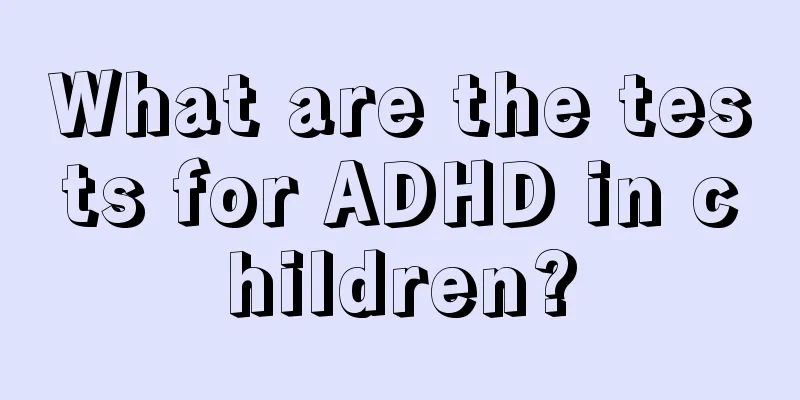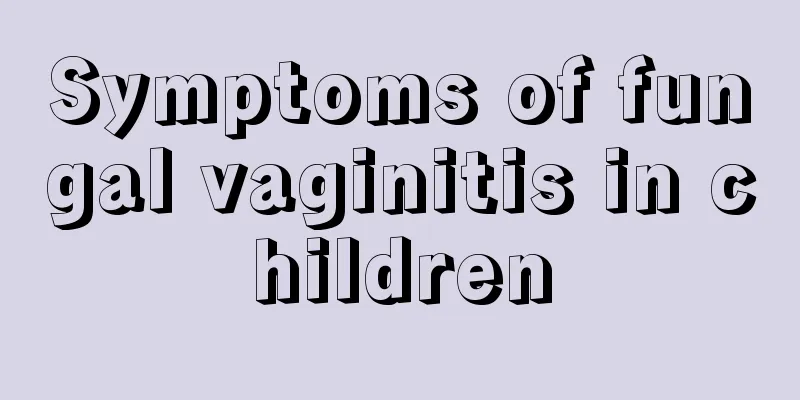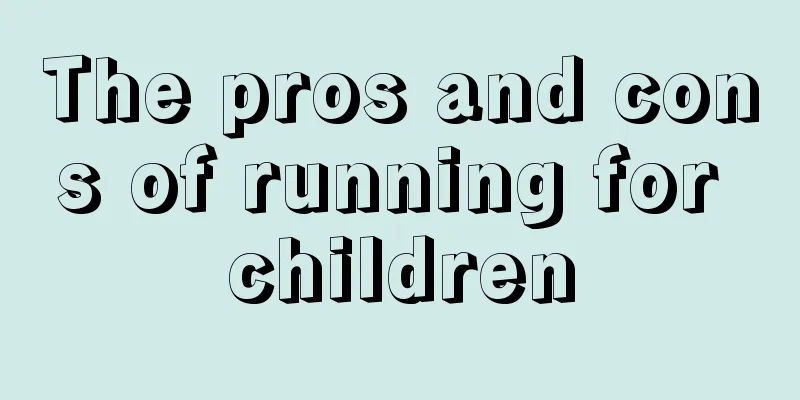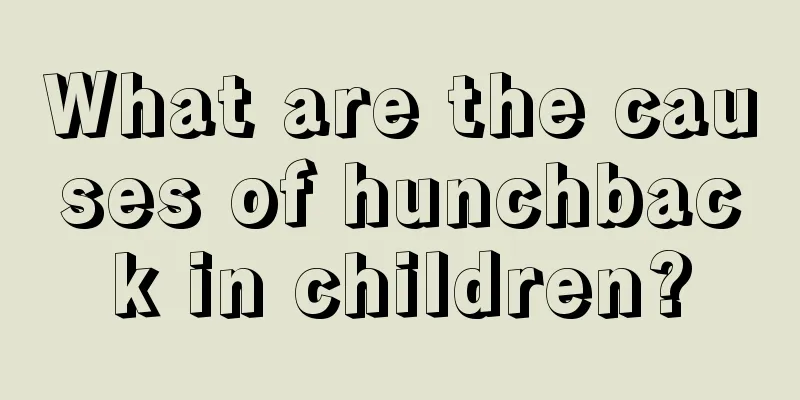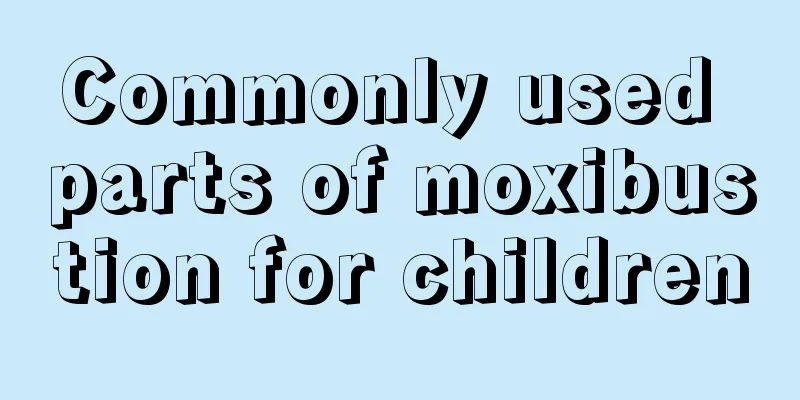How to quickly eliminate baby's bloating and diarrhea
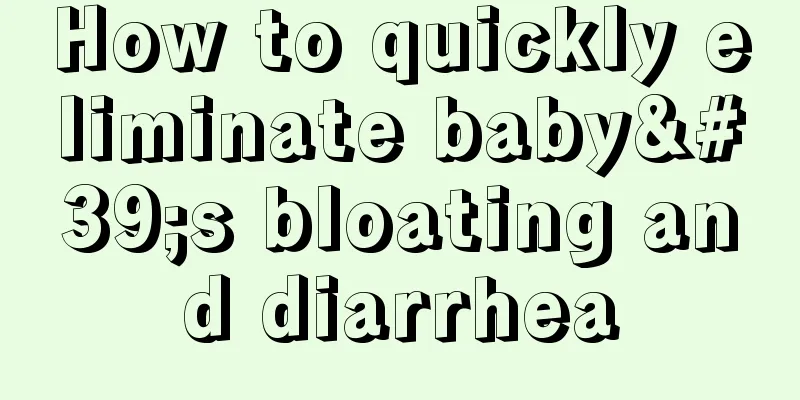
|
The baby's stomach and intestines are usually very delicate. If you do not pay attention to the baby's diet, it is easy to affect the baby's physical health. In severe cases, it may be detrimental to the baby's growth and development. In order to avoid diarrhea and bloating in the baby, you need to pay special attention to the diet. Try to let the baby eat a light diet, eat less spicy and irritating food, let the baby drink more water, and develop good living habits. How to quickly eliminate baby's bloating and diarrhea? Generally speaking, a baby's belly is bigger than an adult's and looks bloated. This is because the child's abdominal wall muscles are not yet fully developed, but have to accommodate the same number of internal organs as an adult. When the abdominal muscles do not have enough strength to bear the weight, the abdomen will appear more prominent, especially when the baby is held, the abdomen will appear to sag. In addition, the baby's body is round from front to back, not slightly flat like an adult's, which is one of the reasons why the belly looks bloated. In addition to the aforementioned reasons, another common factor causing abdominal distension in babies is that babies are more prone to bloating than adults. The main causes of bloating include the following aspects: 1. The baby eats and sucks too quickly, causing air to be inhaled into the stomach, especially when the baby is hungry for too long before feeding milk. 2. The nipple hole of the bottle is not of appropriate size, causing air to enter the baby's body through the gap in the nipple. 3. The baby cries excessively. 4. The inhaled milk or other food is fermented in the digestive tract by intestinal bacteria and other digestive enzymes, producing a large amount of gas. How to help your baby calm down In fact, babies also have some ways to dissipate gas, such as: 1. After feeding, gently pat the baby's back to promote burping and discharge gas from the esophagus; 2. Some babies are very good at passing gas and can pass it out through the anus; 3. In addition, abdominal distension can also be relieved by relying on the absorption of the gastrointestinal wall. Is flatulence a disease? Does it need treatment? As for whether flatulence is a disease and whether it requires treatment, in principle the judgment should be based on the baby's clinical symptoms. If the baby can eat, defecate, does not vomit, has a soft belly, is active, passes gas normally, and gains weight normally, then this type of abdominal distension is mostly functional abdominal distension and does not require special treatment. If the baby is sick, for example, with respiratory tract infection, enteritis or constipation, it can easily lead to poor gastrointestinal motility and digestive absorption functions, leading to bloating and even affecting appetite. If these symptoms occur, you should see a doctor. |
<<: What to do if your six-month-old baby has diarrhea
>>: What medicine should a four-year-old child take for diarrhea?
Recommend
What to do if children have lice
In recent years, sanitary conditions have improve...
Causes and treatment measures for sudden fever in children
Babies will have fever more or less from childhoo...
What are the dangers of children pulling their legs?
In modern life, parents give their children a ver...
What to do if your newborn baby has bleeding belly button
Newly born babies are very weak. Many people pay ...
What is the reason for the baby to breastfeed frequently?
Many parents are taking care of their children fo...
How to cook baby boiled shrimp
If the prawns you buy are fresh enough, the best ...
What fruits are good for children with indigestion?
We can eat fruits frequently in our lives. Fruits...
What should I do if my two-year-old baby has poor digestion?
Many children usually don’t like to eat with big ...
Treatment of baby's pharyngeal congestion
In the new life, everyone pays attention to scien...
How to feed a five-month-old baby
We all say that babies are angels, but it is not ...
What happened to the gas egg?
A common disease problem in boys is what we often...
What is wrong with babies with severe brain retardation?
Nowadays, a small number of babies are found to h...
Why do children sweat so much?
It is normal for children to sweat, but it depend...
What are the signs that a baby is frightened?
Because the baby's body systems are not fully...
The child always feels itchy when sleeping
Children's skin is relatively delicate and is...
